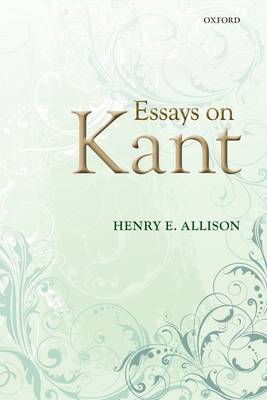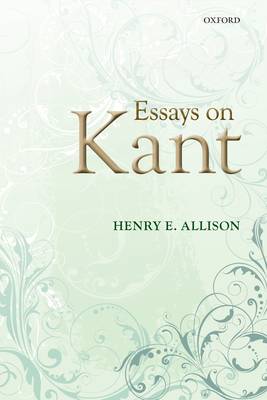
- Afhalen na 1 uur in een winkel met voorraad
- Gratis thuislevering in België vanaf € 30
- Ruim aanbod met 7 miljoen producten
- Afhalen na 1 uur in een winkel met voorraad
- Gratis thuislevering in België vanaf € 30
- Ruim aanbod met 7 miljoen producten
Zoeken
Omschrijving
This volume comprises seventeen essays by Henry E. Allison, one of the world's leading Kant scholars. They cover virtually the full spectrum of Allison's work on Kant, ranging from his epistemology, metaphysics, and moral theory to his views on teleology, political philosophy, the philosophy of history, and the philosophy of religion. But most of the essays revolve around three basic themes: the nature of transcendental idealism and its relation to other aspects of Kant's thought; freedom of the will; and the concept of the purposiveness of nature. The first two themes have been prominent in Allison's work on Kant since its inception. The essays on the third theme constitute a major new contribution to the understanding of Kant's 'critical' philosophy; their primary concern is to demonstrate the central place of the third Critique in Kant's thought. Among the notable features of Allison's essays is the presence of a significant comparative dimension, which places Kant's views in their historical context and explores their contemporary relevance. To this end, these views are contrasted with those of his major predecessors and immediate successors, as well as philosophers of the present day.
Specificaties
Betrokkenen
- Auteur(s):
- Uitgeverij:
Inhoud
- Aantal bladzijden:
- 304
- Taal:
- Engels
Eigenschappen
- Productcode (EAN):
- 9780199647026
- Verschijningsdatum:
- 7/09/2012
- Uitvoering:
- Paperback
- Formaat:
- Trade paperback (VS)
- Afmetingen:
- 155 mm x 229 mm
- Gewicht:
- 453 g

Alleen bij Standaard Boekhandel
+ 193 punten op je klantenkaart van Standaard Boekhandel
Beoordelingen
We publiceren alleen reviews die voldoen aan de voorwaarden voor reviews. Bekijk onze voorwaarden voor reviews.







